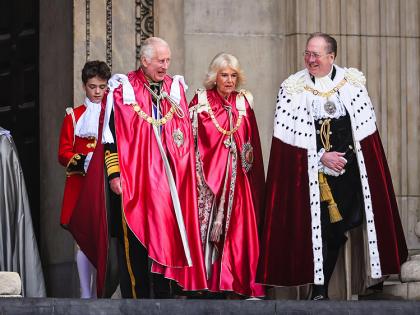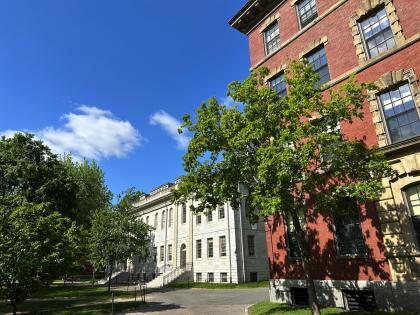Charles Miller seeks an identification, and the exact words, of the German historian referred to by the late Harvard Law School professor Paul Freund in a 1950 essay: “No one would have been more entitled [than Justice Brandeis], or less inclined, to echo the words of the German historian, ‘I have spent sleepless nights that others might rest.’”
Josh Gibson hopes someone can identify a short story about a Nazi (not, he thinks, Dietrich von Choltitz, the military governor of Paris after D-Day) who refuses an order to demolish a cathedral and/or its windows. The text describes the man looking through binoculars or a rifle scope as he has his second thoughts.
John Ehrenreich thinks Churchill once said, “Love and war change everything”— meaning certain events such as falling in love, or starting a war, change things irreversibly, creating a discontinuity with the past. He would like a verified citation.
“When the Camp says: ‘Dig graves now,’…I’ll know and be with you” (March-April 2004). Kathleen O’Higgins identified Peter Viereck’s poem “To Be Sung,” published in Time and Continuities: Last and First Poems (1995).
“in Harvard balance” (July-August). Responding to Robert Hoffman’s reply, Ernest Bergel (with 20 years’ more medical experience) reports hearing “dying in balance” (no “Harvard”) in the mid 1950s in the early days of the study of serum electrolyte balance. Doctors focused on sodium, potassium, chloride, and bicarbonate, not realizing the importance of magnesium: “Thus, as they ‘corrected’ patients’ acid/base balance, they often intensified their hypomagnesemia, which led to death.” Bergel and Irving Rudman, M.D., both cite an earlier recording, The Exsanguination Blues (attributed to a student or house officer at North Carolina Memorial Hospital) that included a song ending, “He died in balance.” Bergel suggests “Harvard” might have been added later because of the research of Harvard biochemist A. Baird Hastings, who lectured widely on acid/base balance: “It seems at least plausible that after such a lecture, someone attached the adjective as shorthand to refer to the subject.”
“selling the Stradivarius” (September-October). Sean Condon recognized “The Shanahan Strad,” by Paul Jones, published by Collier’s in 1948 and reprinted in Best Short Shorts, edited by Eric Berger (1967).







